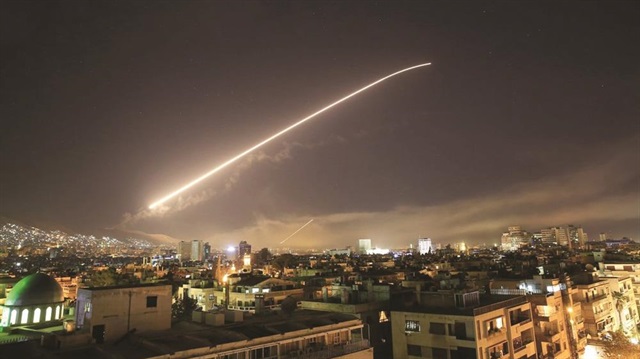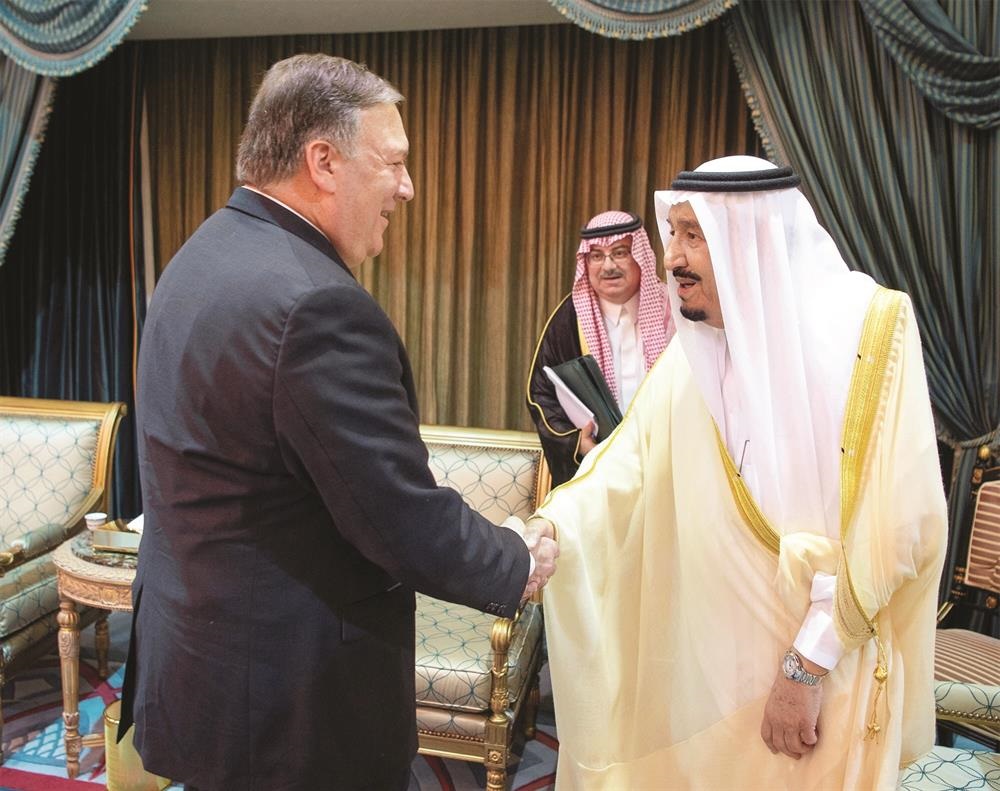
Recent developments indicate that Syria is being prepared as the field for a war between Iran and Israel backed by Arab forces
A new era dubbed “the war of actors” has started following the launch of joint strikes targeting Syria by the United States, Britain and France in April. The official visits of newly appointed Secretary of State Mike Pompeo to certain points in the Middle East are signals regarding this new era.
Pompeo’s visits to Saudi Arabia, Israel and Jordan are indicative of plans regarding Syria and moves aimed at severing Iran’s influence in the region. Israel’s recent announcements regarding Iran are seen as a part of this ploy.

Israel’s parliament, or Knesset, voted Monday in favor of a bill that would allow the country’s prime minister to declare war in “extreme situations.” It is possible that in the upcoming period, Israel may be more visible on the field in Syria.
Before the Knesset vote, Netanyahu claimed that Israel’s intelligence service had obtained secret information from an Iranian nuclear weapons program, and U.S. President Donald Trump backed this claim. Netanyahu stated Israeli intelligence services had attained 55,000 pages of Iranian documents revealing how Tehran lied to the world after signing a landmark deal in 2015 to curb its nuclear program.
"Iran lied about never having a nuclear weapons program; 100,000 secret files proved that they lied," Netanyahu said. His remarks followed a weekend meeting between Netanyahu and newly sworn-in U.S. Secretary of State Mike Pompeo.
“President Trump’s been pretty clear, this deal is very flawed. He’s directed the administration to try and fix it and if we can’t fix it he’s going to withdraw from the deal. It's pretty straightforward. Unlike the past administration, President Trump has a comprehensive Iran strategy that is designed to counter the full array of threats emanating from Tehran,” Pompeo said in Israel.
May 12 is the deadline for the 2015 nuclear deal struck by Britain, China, France, Germany, Russia, the U.S. and Iran in which Tehran agreed to curb its nuclear program in return for respite from U.S. and other economic sanctions.
On the same day, elections will be held in Iraq. If the nuclear agreement is cut, Iran will be hit by economic sanctions and its activities in the Iraq-Syria field will be tried to be reduced.
It is claimed that in doing so, the spark of Sunni-Shiite clashes aims to be ignited with the U.S.-constructed joint military force from neighboring Arab countries.
It is expected that the Syrian war will shift to the southwest border with Jordan, and it is highly likely that Israel will become more involved in the Syrian war. Until now, Israel has periodically became involved to secure occupied Golan Heights, which it has occupied most of since the 1967 Middle East War.
Recent developments indicate that Syria is being prepared as the field for a war between Iran and Israel backed by Arab forces. No developments have yet signaled what kind of stance Russia, one of Syria’s staunchest allies, will take.
Western forces led by the U.S., which is disturbed by Ankara’s Operation Olive Branch in Afrin and the Astana alliance, may force Turkey to take sides against Iran as a result of the developments in Syria. Turkey, which has a serious military presence in Syria, has strengthened its position in the region. An operation in Tell Rifaat to clear it of terror elements may be launched soon. Ankara is engaging in diplomacy to prevent clashes arising from Islamic sect differences.
Britain, France and Germany are seeking to regain control of the area they lost in 1830. France is awaiting for a new opportunity, even though the Kurdistan Workers’ Party (PKK)’s Syrian branch, the PYD, is strengthening its foothold in Manbij.
French troops that were sent to Manbij following Turkey’s Operation Olive Branch were spotted in the YPG/PKK-occupied city for the first time as footage showed them patrolling alongside U.S. troops and terrorists. Britain is protecting its presence with the Al Tanf base.
The U.S. announced on Tuesday that it was “launching operations to liberate the final ISIS [Daesh] strongholds in Syria.”
“The days of ISIS [Daesh] controlling territory and terrorizing the people of Syria are coming to an end,” State Department spokeswoman Heather Nauert said in a written statement.
Nauert added that the U.S. would work with its NATO ally Turkey and other regional partners Israel, Jordan, Iraq and Lebanon "to secure their borders from ISIS [Daesh]."
Syria has been locked in a vicious civil war since early 2011 when the Assad regime cracked down on pro-democracy protests with unexpected ferocity.
Hello, the comments you share on our site are a valuable resource for other users. Please respect other users and different opinions. Do not use rude, offensive, derogatory, or discriminatory language.
The floor is all yours.














